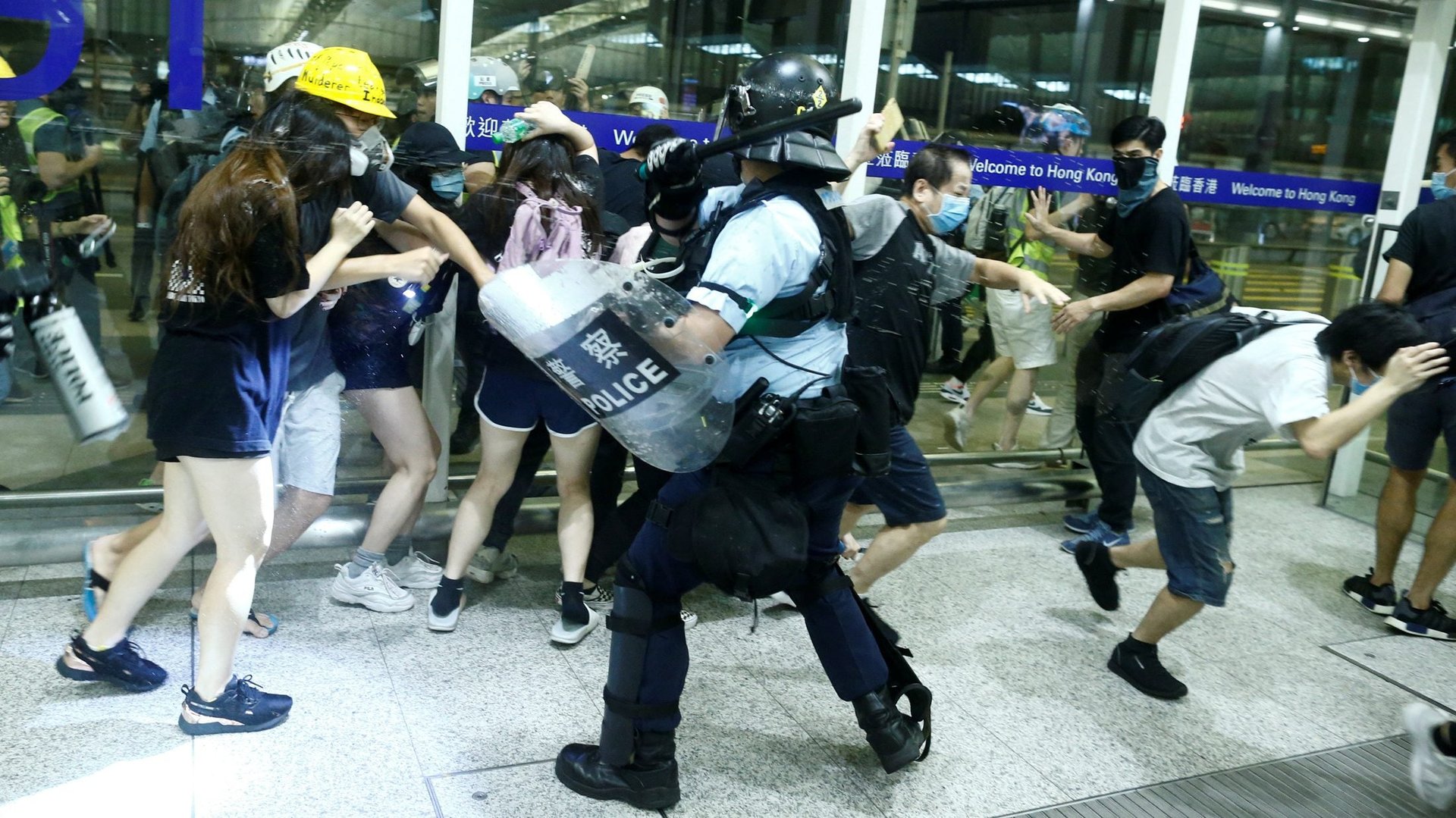TikTok’s parent company appears to be censoring the Hong Kong protests
ByteDance, the Beijing-based company behind the popular short-video app TikTok, has started its own search engine to compete with the likes of Baidu. Called “Toutiao Search,” the portal is built into the company’s existing news aggregation service, Jinri Toutiao (“Today’s Headlines”).


ByteDance, the Beijing-based company behind the popular short-video app TikTok, has started its own search engine to compete with the likes of Baidu. Called “Toutiao Search,” the portal is built into the company’s existing news aggregation service, Jinri Toutiao (“Today’s Headlines”).
Like Baidu and Microsoft’s Bing, Toutiao Search appears to be censoring results to appease the Chinese government. For instance, a search for “香港,” the Chinese characters for “Hong Kong,” on Toutiao returns articles mostly from state-sponsored media, which have tried to control the narrative as demonstrators push for democracy in the city. These articles, shown when searching on a computer in the US, characterize anti-government protestors as terrorists and showcase violence against police.
“Who are the people destroying Hong Kong with evil violence?” asks one headline from Toutiao.com, translated by Quartz. “Hong Kong has reached a crisis point, the cancer of violence must be removed,” declares another from the overseas edition of the People’s Daily, an official newspaper of the Communist Party of China. Another, sitting on the homepage of Toutiao yesterday (Aug. 13) asks, “The situation in Hong Kong is so nasty. Why hasn’t the Chinese government intervened?”
A Toutiao search for “June Fourth,” a phrase Chinese mainlanders use to refer to the Tiananmen Square protests, also returns stories predominantly from Chinese government-sanctioned media, Reuters noted.
ByteDance’s selective information surfacing doesn’t end there. On the US version of its TikTok app, the hashtag #HongKong didn’t seem to provide any results related to the Hong Kong protests. A search for #HongKongProtest returned just three results with police and protestors clashing. Together, the clips had fewer than 500 views in total at the time of publishing. However, the hashtag #反送中 (a rough shorthand for the anti-extradition protests) returned a collection of posts, which have garnered about 87,000 views collectively. But those numbers pale in comparison to more popular hashtags, which garner hundreds of millions, or even hundreds of billions of views.
ByteDance wasn’t immediately available to explain whether the Chinese version of TikTok, called “Douyin,” has a stricter content removal policy related to the Hong Kong protests or whether the #反送中 posts are visible in China.
As a social media user, it’s difficult to reconcile TikTok’s playfulness with ByteDance’s apparent willingness to bow to the Chinese government. TikTok is supposed to be fun and silly, helping ByteDance balloon to over 1 billion users around the world. The ethics of state-sanctioned censorship? Not as much fun.
Although Baidu currently controls 76% of China’s online search market, ByteDance could eventually become a meaningful alternative, given its rising popularity. The company was reportedly valued at $78 billion during a financing round last fall.